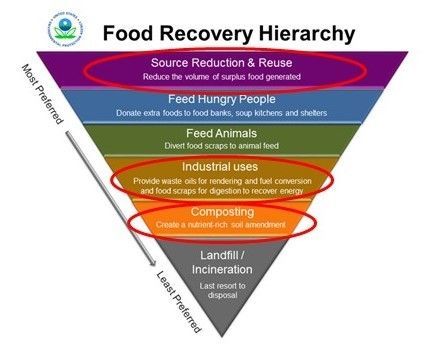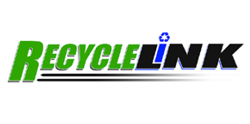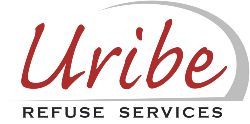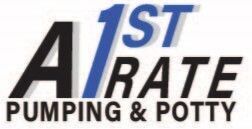WHAT CAN GO IN MY COMPOST BIN?
We work with an industrial composting facility, which means we can accept a wider range of materials than traditional composting.
- Any food material including raw meats and fish, bones, eggshells and dairy.
- Non-treated wood and bamboo.
- Certified compostable products
- Greasy or waxed cardboard (no plastic)
- Napkins and Paper towels
- Coffee Grounds and Filters
HOW CAN I TELL IF MY DISPOSABLES ARE COMPOSTABLES?
WHO CAN PARTICIPATE IN FOOD WASTE COLLECTION?
Essentially any person or business who produces organic waste!
Are you in the Omaha area looking for services like ours?
Check out Hillside Solutions . They are the Omaha-areas only locally-owned eco-friendly waste management company with recycling, landfill & composting hauling services.
Email samantha@hillside.solutions for more info
HOW IMPACTFUL ARE OUR FOOD WASTE STRATEGIES?
The food recovery hierarchy set by the EPA (shown below) illustrates the methods of food recovery with their order of impact. The figure shows most preferred to least preferred methods with landfilling sitting at the bottom of the triangle. We at WTEL believe it’s going to take a combined effort to reduce our food waste. That is why we are targeting industrial uses through anaerobic digestion, composting through food waste delivery to Prarieland, and source reduction and reuse through tools like waste audits.

WHAT IS ANAEROBIC DIGESTION?
Anaerobic digestion is a series of biological processes where microorganisms break down organic biodegradable material in the absence of oxygen. One of the end products of this process is biogas, which can then generate heat and electricity, or can be processed into renewable natural gases to fuel vehicles. The second product is biosolids, which can be used as a natural fertilizer.




